Physical Address
304 North Cardinal St.
Dorchester Center, MA 02124
Physical Address
304 North Cardinal St.
Dorchester Center, MA 02124
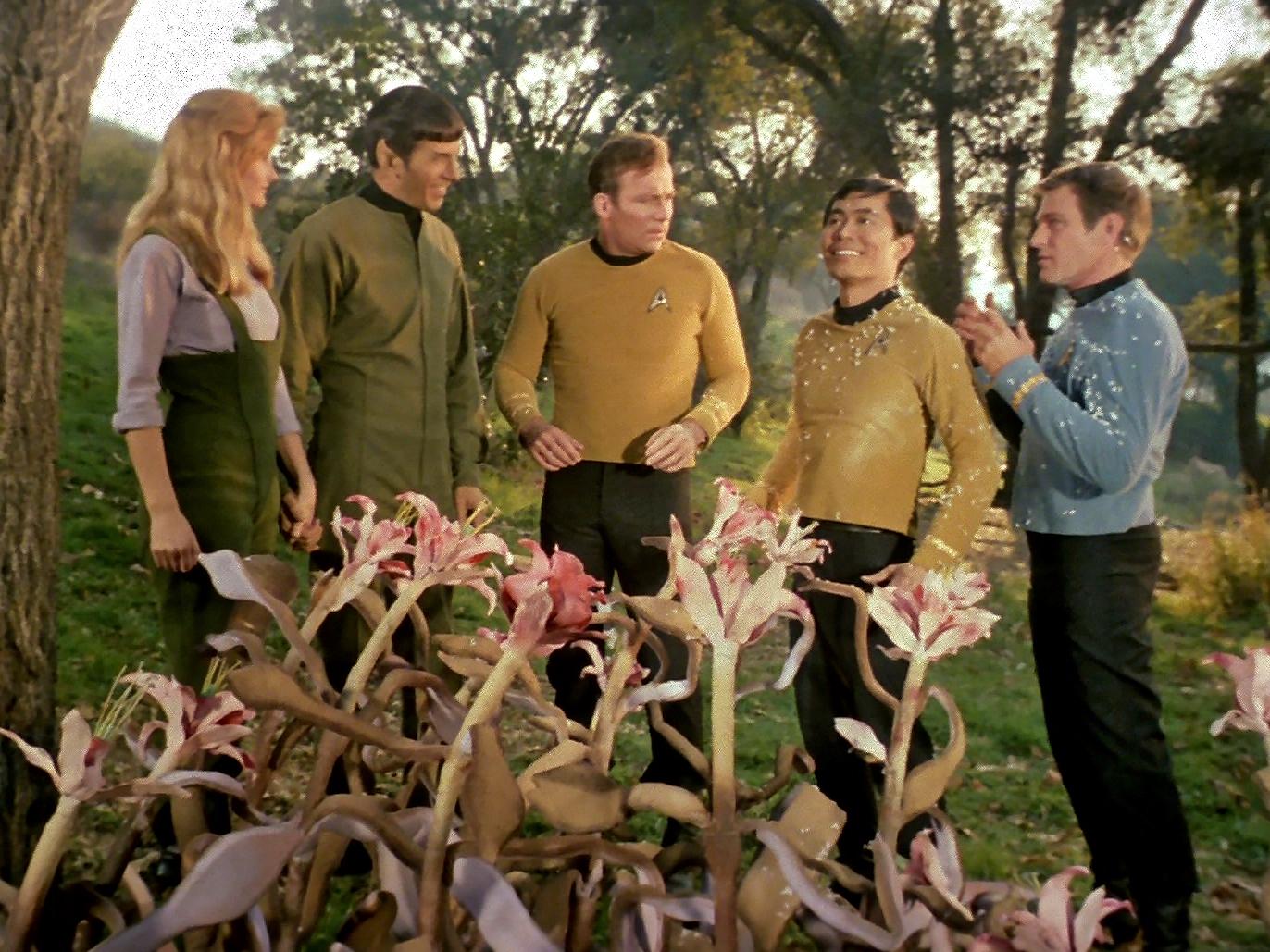
“This Side of Paradise” stands as one of the most memorable episodes of the original Star Trek series, captivating audiences with its unique storyline and exploration of human emotion. Featuring a talented cast led by William Shatner and Leonard Nimoy, and a guest appearance by Jill Ireland, the episode dives deep into themes of love, contentment, and the cost of a utopian existence. Fans frequently discuss the episode’s compelling script, iconic quotes, and filming locations on platforms like Reddit. As part of the unforgettable first season, “This Side of Paradise” holds a special place alongside episodes like “Errand of Mercy” in Star Trek history.
“This Side of Paradise” is a memorable episode from the first season of Star Trek: The Original Series, first aired in 1967. The USS Enterprise visits Omicron Ceti III, a colony where the inhabitants live under the influence of mysterious spores from local plants. These spores bring them perfect health and a peaceful, joyful state, but at the cost of their ambition and duty. What makes this episode stand out is how it explores themes of happiness, free will, and the tension between comfort and responsibility.
One of the most striking moments is when Spock, usually so logical and reserved, succumbs to the spores and experiences genuine happiness and love, showing a rare emotional side of his character. Captain Kirk, however, sees the spores’ effect as a dangerous surrender to complacency and fights to free his crew, even provoking Spock to break the spell by insulting his Vulcan heritage. The story raises interesting questions about whether true paradise is worth the price of giving up one’s drive and purpose. It’s a thoughtful mix of sci-fi adventure and emotional depth, with a subtle nod to the 1960s counterculture through its portrayal of the colony’s peaceful, almost utopian lifestyle.
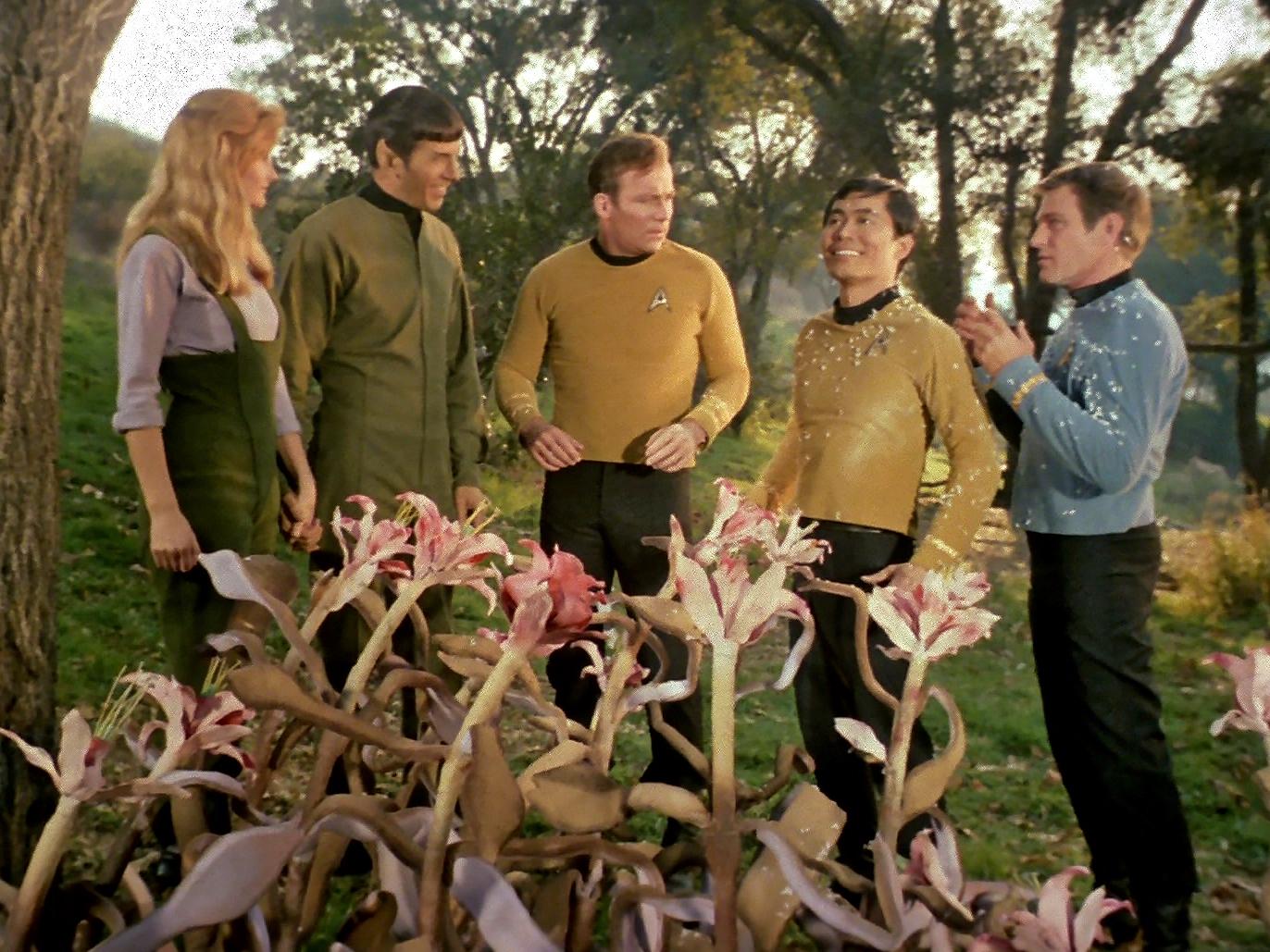
The cast of This Side of Paradise, a memorable episode from Star Trek: The Original Series, features some of the franchise’s most iconic actors. William Shatner stars as Captain James T. Kirk, leading the mission to a mysterious colony on Omicron Ceti III. Leonard Nimoy plays Spock, whose character undergoes a rare emotional transformation in this episode. DeForest Kelley appears as Dr. Leonard McCoy, providing his usual blend of medical expertise and witty banter. Jill Ireland guest stars as Leila Kalomi, a botanist with a past connection to Spock, adding emotional depth to the story. Frank Overton plays Elias Sandoval, the colony’s leader who welcomes the Enterprise crew. The supporting cast includes Grant Woods as Lt. Kelowitz, George Takei as Lt. Hikaru Sulu, and Nichelle Nichols as Lt. Nyota Uhura, all familiar faces from the original series. Other crew members like Michael Barrier (Lt. DeSalle) and Eddie Paskey (Crewman Leslie) round out the team. This ensemble brings to life a story that blends mystery, romance, and the classic Star Trek spirit of exploration and resilience.
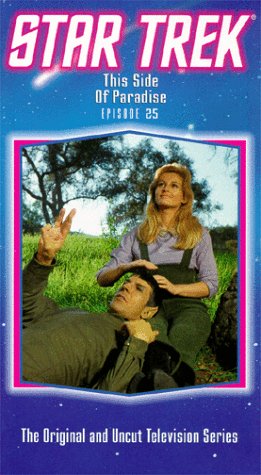
The Star Trek episode “This Side of Paradise” is a fascinating mix of mystery and emotion set on a seemingly peaceful planet where a doomed colony was expected to have perished. When the USS Enterprise arrives, they find the colonists not only alive but thriving in perfect health, despite the planet being bombarded by deadly Berthold Rays that should have wiped out all life. The secret? Strange plant spores that keep everyone in a state of blissful happiness and remarkable health, even regenerating lost body parts. This creates a dilemma for Captain Kirk and his crew, who must figure out how to break the spores’ hold and convince the colonists to leave.
One of the most memorable parts of the episode is Spock’s transformation. Usually stoic and logical, Spock falls under the spores’ influence and experiences emotions and love for the first time, especially with an old flame, Leila Kalomi. However, Kirk eventually discovers that strong emotions and conflict can destroy the spores’ effect, leading to a dramatic and emotional resolution where the crew regains their free will. The episode explores themes of paradise, responsibility, and the cost of choosing comfort over duty, making it a standout in the original series.
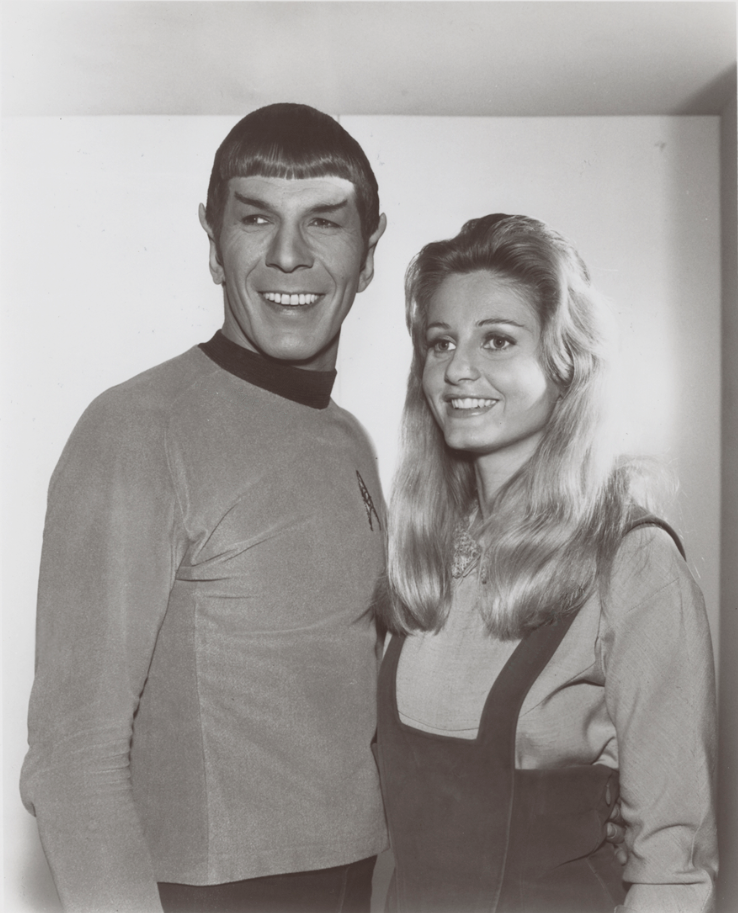
If you’re diving into the Star Trek Reddit community, the episode This Side of Paradise from the original series often sparks lively discussions. It’s a classic story where the Enterprise crew investigates a colony on Omicron Ceti III, only to discover the colonists are living in blissful harmony thanks to mysterious spores that induce happiness and contentment. What makes this episode especially memorable for fans is seeing Spock, usually so stoic and logical, completely transformed by the spores—he experiences joy and even falls in love, which is a rare and touching moment.
Redditors often explore the deeper themes here, like the tension between duty and happiness. Captain Kirk resists the spores because he can’t abandon his responsibilities, while Spock’s struggle highlights his internal conflict between emotion and logic. The episode also raises questions about what paradise really means and whether escaping pain is worth giving up purpose. It’s a favorite for its mix of suspense, character development, and philosophical questions, making it a rich topic for Star Trek fans to analyze and debate online.
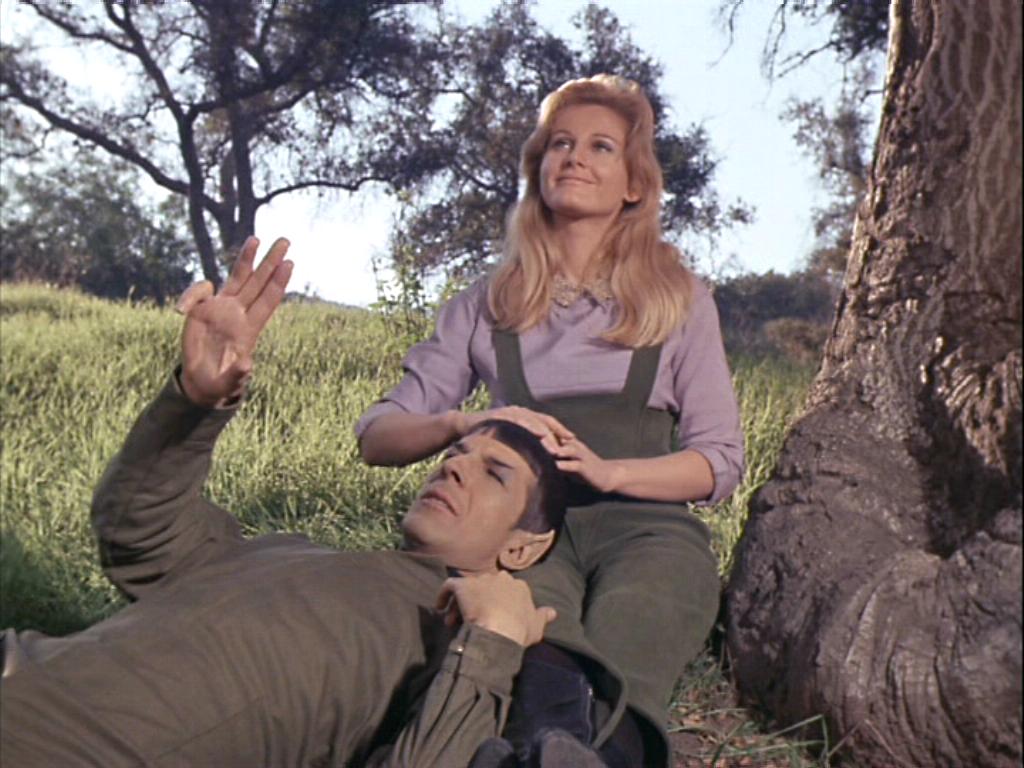
“This Side of Paradise” is a memorable episode from the first season of Star Trek: The Original Series, first aired in 1967. The USS Enterprise visits Omicron Ceti III, a planet where colonists live in apparent paradise, but it turns out they are under the influence of mysterious alien spores that induce a blissful, carefree state. What makes this episode stand out is how it explores themes of happiness, duty, and free will, especially through Spock’s unusual transformation. Normally stoic and logical, Spock becomes emotional and even falls in love, showing a side rarely seen in the series.
Captain Kirk faces a dilemma as the spores affect the crew, making them unwilling to work or leave the planet. He must find a way to break the spores’ hold without harming anyone, which leads to some tense and heartfelt moments. The episode also subtly reflects the 1960s counterculture, with its portrayal of a peaceful, almost utopian lifestyle that tempts the characters away from their responsibilities. Overall, “This Side of Paradise” offers a thoughtful, bittersweet story with strong character development, especially for Spock, making it a fan favorite and a classic example of Star Trek’s ability to mix sci-fi with deeper human questions.
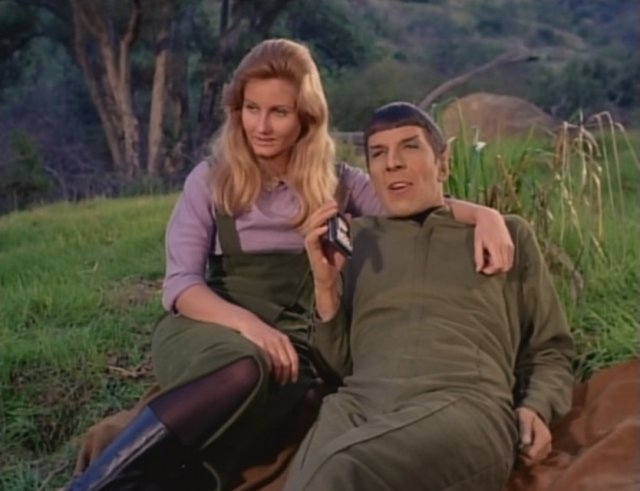
The episode “This Side of Paradise” from Star Trek: The Original Series is famous for some deeply memorable quotes that really capture its themes. One of the most striking lines comes from Captain Kirk, who reflects on human nature: “Maybe we weren’t meant for paradise. Maybe we were meant to fight our way through, struggle, claw our way up, scratch for every inch of the way.” This quote speaks to the idea that growth and progress often come through challenge, not comfort.
Another powerful moment is when Spock, usually so logical and reserved, admits, “For the first time in my life… I was happy.” This shows how even the most disciplined can be touched by the allure of peace and contentment, though it’s fleeting. Dr. McCoy’s dry humor also shines through with, “Well, that’s the second time man’s been thrown out of paradise,” highlighting the episode’s nod to classic themes of temptation and loss.
These quotes blend philosophy, humor, and character insight, making “This Side of Paradise” a standout episode that explores the tension between duty and desire, struggle and serenity.
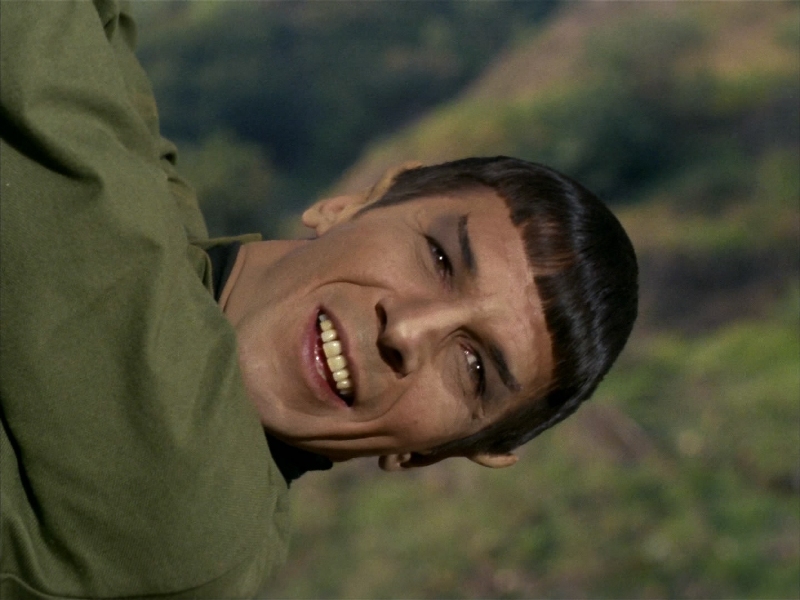
The filming location for the classic Star Trek episode This Side of Paradise was primarily Walt Disney’s Golden Oak Ranch in Newhall, California. This ranch was a popular spot for many Westerns, including Gunsmoke, which helped give the episode a “space western” vibe that fit perfectly with the story’s peaceful, almost Eden-like colony on Omicron Ceti III. The ranch’s natural landscapes provided the ideal backdrop for the lush, spore-filled environment that brought the episode’s unique ecosystem to life.
In addition to Golden Oak Ranch, some scenes were filmed at Bronson Canyon in Griffith Park and Desilu Studios in Culver City, California. The outdoor locations helped create the feeling of a remote, tranquil settlement untouched by modern technology or conflict, which was central to the episode’s theme of a utopian paradise sustained by mysterious spores. The choice of these familiar California locations allowed the production to blend natural beauty with the sci-fi elements that made the episode so memorable. Filming took place over about a week in early January 1967, capturing the serene yet eerie atmosphere that defines This Side of Paradise.
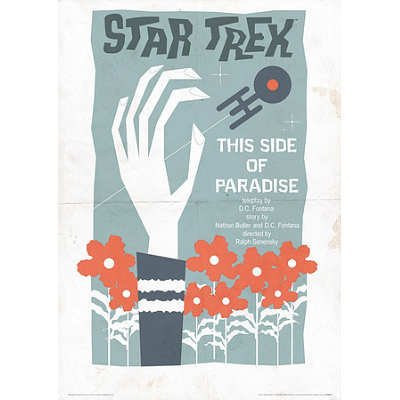
The cast of This Side of Paradise brings together a mix of talented actors who bring F. Scott Fitzgerald’s classic characters to life. While specific details about the cast for some adaptations can vary, the story’s central figure, Amory Blaine, is often portrayed by a lead actor who captures his youthful ambition and complex emotions. Other key characters include friends like Thomas Parke D’Invilliers and Burne Holiday, who shape Amory’s experiences at Princeton and beyond. These roles require actors who can convey the nuances of early 20th-century social dynamics and personal growth.
In some recent productions, such as the 2025 film adaptation, the cast is less widely publicized, but the focus remains on portraying the emotional depth and social challenges Amory faces. The ensemble typically includes actors playing Amory’s family members, mentors, and love interests, all contributing to the rich tapestry of the narrative. The casting aims to reflect the novel’s themes of youth, idealism, and the search for identity, making the characters relatable and engaging for modern audiences. Overall, the cast is chosen to bring authenticity and emotional resonance to Fitzgerald’s timeless story.
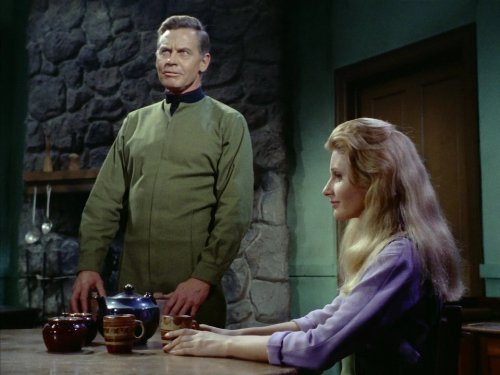
Jill Ireland was a talented British actress born in London in 1936. She started her career as a dancer and made her screen debut in the 1955 film Oh… Rosalinda!!. After gaining experience in British television and movies, she moved to Hollywood in the early 1960s. Jill is perhaps best remembered for her roles alongside her second husband, Charles Bronson, whom she married in 1968. Together, they appeared in many films, and she also worked as a producer for some of his projects.
Before marrying Bronson, Jill was married to actor David McCallum, known for The Man from U.N.C.L.E.. Beyond her acting career, Jill Ireland was admired for her courage in facing breast cancer. She wrote two heartfelt books about her battle with the disease and her family struggles, becoming a spokesperson for the American Cancer Society. Jill passed away in 1990, but her legacy as a dedicated actress and inspiring figure continues to be remembered fondly.
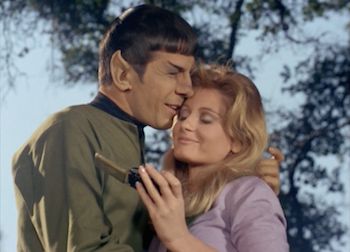
“Errand of Mercy” is a classic episode from the original Star Trek series that explores the tension between the United Federation of Planets and the Klingon Empire, who are on the brink of war. The story centers on the peaceful planet Organia, whose inhabitants seem simple and uninterested in the conflict around them. Captain Kirk and Spock arrive to try to protect Organia from Klingon occupation, but the Organians appear indifferent to the looming war and even betray Kirk and Spock to the Klingons. Despite this, the Organians later rescue them, revealing a deeper power and wisdom beneath their calm exterior.
The episode highlights themes of war, peace, and the moral questions about violence and governance. In a surprising twist, the Organians intervene to stop the fighting by immobilizing both the Federation and Klingon war machines, forcing a ceasefire. This powerful message about peace and the futility of war resonated during the Cold War era when the episode aired. It’s a thoughtful story that challenges the idea of conflict as inevitable and suggests that sometimes, peace requires unexpected intervention and understanding.
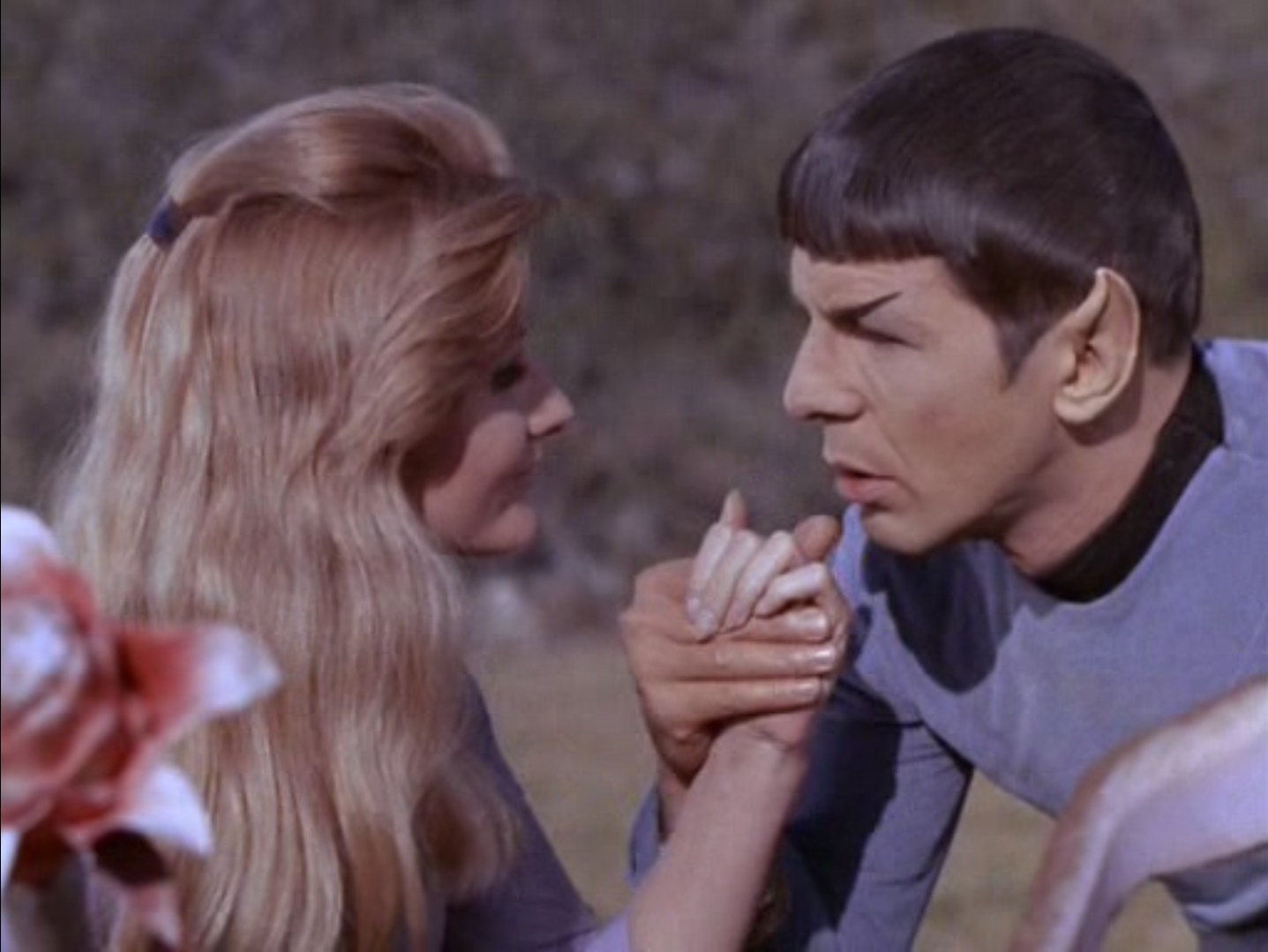
“This Side of Paradise” in Star Trek is a poignant exploration of love, sacrifice, and the complexities of human emotions. Through the lens of the Enterprise crew’s encounter with a seemingly idyllic planet, the episode delves into the characters’ struggles between personal desires and their responsibilities. By showcasing the transformative power of love over temptation, it reinforces the importance of genuine connections over superficial bliss. Ultimately, the narrative serves as a reminder that true paradise is found not in isolation from adversity, but in the shared journey of overcoming challenges together. This thought-provoking episode leaves a lasting impact on viewers, highlighting the intricacies of human experience.